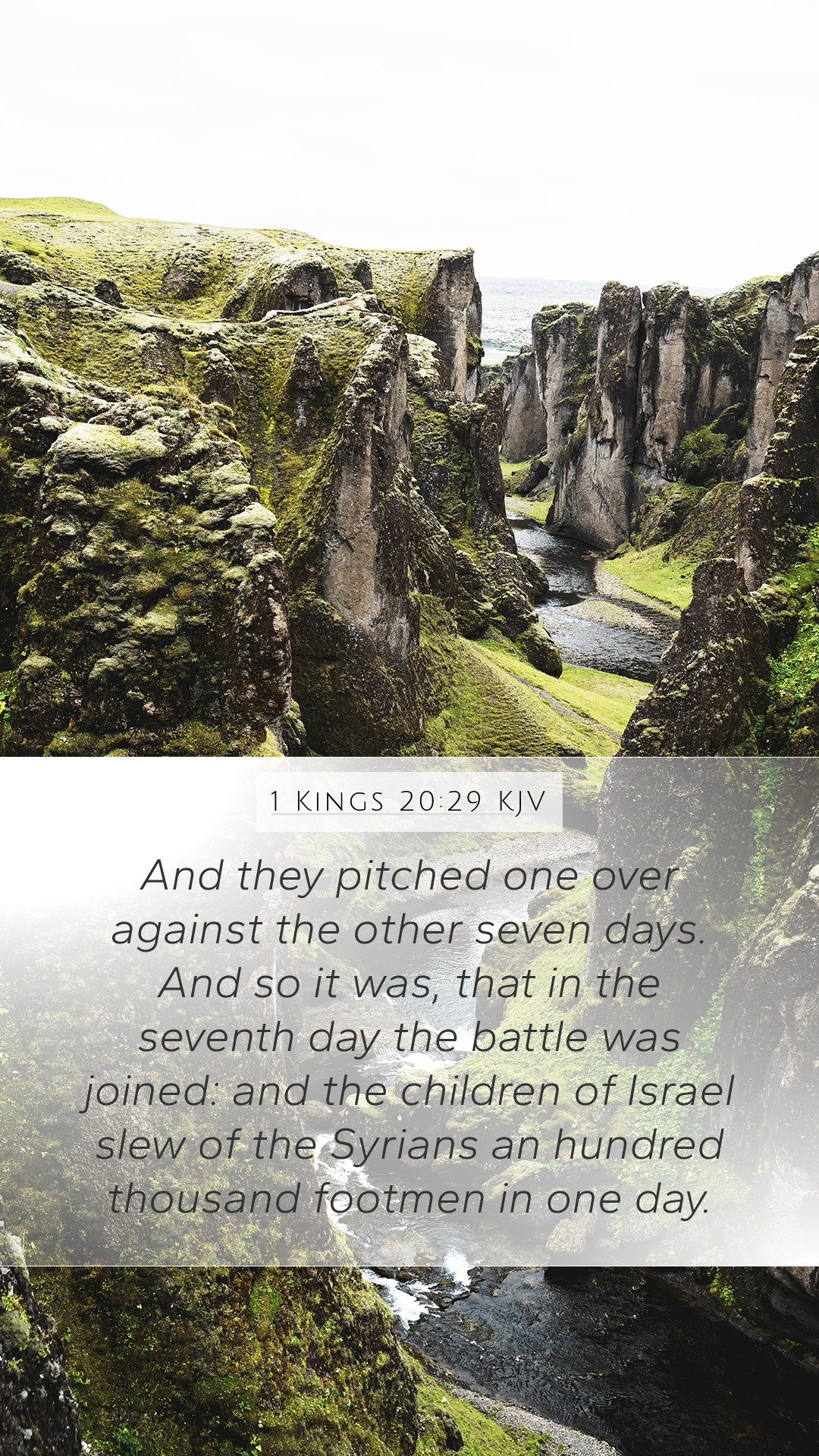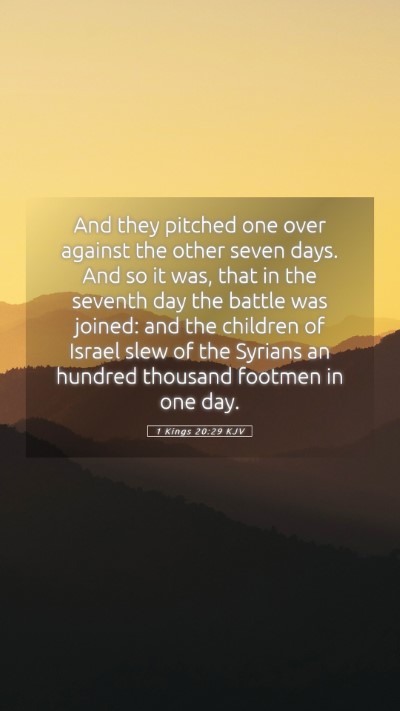The verse 1 Kings 20:29 is a significant passage in the context of Israel's history and its dealings with enemy nations. This verse states,
"And they pitched one over against the other seven days. And so it was, that in the seventh day the battle was joined: and the children of Israel slew of the Syrians a hundred thousand footmen in one day."
This powerful moment in the narrative reveals vital truths about God's sovereignty and the dynamics of warfare in ancient Israel. Below, we provide a comprehensive analysis of this verse, drawing from renowned public domain commentaries.
Understanding the Context
This passage occurs during a series of conflicts between the Israelites and the Syrians, specifically under the reign of King Ahab. According to
Albert Barnes, the significance of the number seven mentioned in the text represents a period of testing and completion, indicating that God had a divine plan for the battle that would unfold.
Insights from Matthew Henry’s Commentary
Matthew Henry emphasizes that the duration of the standoff adds a layer of intensity to the battle. The Israelites camped opposite the Syrians for seven days, which led to heightened anticipation. The lengthy wait could reflect the spiritual preparation needed for when the battle finally commenced. Henry points out that this battle exemplifies the ultimate victory that faith can bring, showing that the Israelites prevailed not merely due to strategy but through divine assistance.
Albert Barnes on the Verse's Meaning
Albert Barnes elucidates that the death of such a large number of soldiers—one hundred thousand—was indicative of the Lord's judgment upon the oppressors of His people. Barnes notes that the Israelites, empowered by God, managed to overcome superior forces. This serves as a poignant reminder that success in spiritual and moral battles often comes not from human strength but through reliance on God’s might.
Adam Clarke’s Exegesis
According to Adam Clarke, the victory was a clear demonstration of God’s favor towards Israel amid their transgressions and failure to uphold His laws. Clarke stresses that the straightforward account of the battle offers a glimpse into the divine providence operating within the historical framework. He asserts that despite the Israelites' shortcomings, God's plan manifests through their victory—a theme ubiquitous in the Old Testament narrative.
Theological Implications
The implications of this text are profound. It not only narrates a historical event but also serves as a theological commentary on God's fidelity to His covenant people.
Henry, Barnes, and Clarke collectively underline the importance of divine intervention in human affairs, emphasizing that such victories remind believers today of the importance of faith and reliance on God amidst their trials.
Application for Today
In today’s context, this verse can encourage individuals and groups engaging in Bible study to reflect on their own battles—whether personal struggles, societal issues, or spiritual endeavors. The narrative encourages Christians to see beyond the physical into the spiritual realm, understanding that faith in God can result in triumph.
This creates a framework for applying Biblical teachings to everyday life, offering a blueprint for those wondering about the significance of similar passages.
Related Bible Cross References
- 1 Samuel 17:47 - "And all this assembly shall know that the Lord saveth not with sword and spear: for the battle is the Lord's, and he will give you into our hands."
- Psalms 44:3 - "For they got not the land in possession by their own sword, neither did their own arm save them: but thy right hand, and thine arm, and the light of thy countenance, because thou hadst a favor unto them."
- 2 Chronicles 20:15 - "And he said, Hearken ye, all Judah, and ye inhabitants of Jerusalem, and thou king Jehoshaphat, Thus saith the Lord unto you, Be not afraid nor dismayed by reason of this great multitude; for the battle is not yours, but God’s."
Conclusion
The examination of 1 Kings 20:29, enriched by the commentaries of Henry, Barnes, and Clarke, provides invaluable Bible study insights into not only the historical significance but also the profound spiritual lessons contained within this verse.
As believers, understanding Scripture in this depth enhances Bible study resources, leading to a richer engagement with the text and a more profound application of its teachings in our daily lives.


